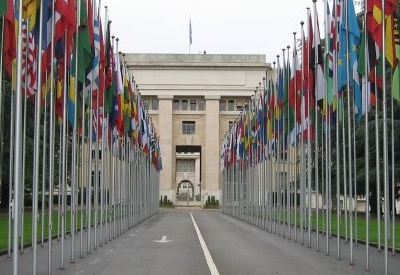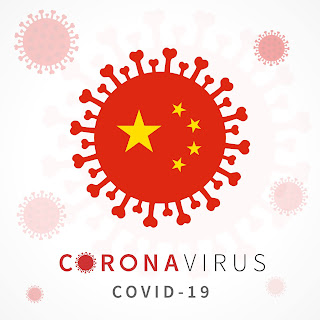Justin Trudeau's Canada
 |
| Image: Getty Images/ Dave Chan |
Abstract: Justin Trudeau came into power in 2015 on the strength of inclusion and a positive approach to governing aka "sunny ways." Despite his best intentions, he incurred the wrath of the electorate over issues relating to the ouster of female ministers and the SNS Lavalin affair. The Liberal Party was returned to power with a minority government and must find ways to incorporate Western Canadians into their big-tent, while supporting policies to assist lower income individuals.
Keywords: Huawei, trade deficit, homelessness, World Bank, China, U.S.
Foreign Policy
Justin Trudeau said in an August 2019 speech the importance of relations between Canada and the United States. That is unmistakable and Canada must curry favour to our American counterparts in this fluid multi-cultural world. But, Canada must work smarter; not harder. A case in point where the Prime Minster was present at a NATO summit at Buckingham Palace in November 2019. Mr Trudeau was caught mocking U.S. President Donald Trump on camera among the French President and others. Therefore, we can say that, yes, this is an important event that requires the Prime Minister to attend, yet, Mr Trudeau needs to brush up on his decorum, particularly when in the presence of dignitaries. Retail politics in the hustings is one thing; not acceptable on the world stage. To be sure, there are some hard feelings about the Trump Administration imposing tariffs on Canadian automobiles and aluminum citing the latter as a security risk. In one instance, Mr Trump explained that Canadians burned down the White House at one time. So, Mr. Trump lacks gumption, candour, and political knowledge that hurts his contemporaries. However, it is best to rise above these situations, particularly, when aligned with our neighbour that we share the world's longest border with. And, Canada needs to acquiesce due to a belligerent China that is focused on sharing the mantle with the U.S. of global super-power. In this instance, Canada must align closer with U.S. policy on China. A place on the UN Security Council should not take priority over fundamental foreign policy issues that are affecting Canadians at the security, economic, and domestic levels. China has taken "shots" at Canada that have gone, basically, unanswered. The arrest of Meng Wanzhou of Huawei has created a crisis where Chinese authorities arrested two Canadians that are being imprisoned in 24 hour lighted cells, under trumped up charges. Meng remains free with a security bracelet being her only inconvenience. Canada has a 44 billion trade deficit with China, and yet, Canadian officials do not seem to flinch when Chinese officials reduce imports of Canola oil, and meat. Trudeau must decide if he wants to link trade to foreign policy with China. He must also measure the effects of Canadian firms contracting arms sales to Saudi Arabia. Trudeau seems amenable to a business first approach, while foreign policy is secondary. He has left a meeting this weekend (February 17) in Barbados with Caribbean leaders at the CARICOM regarding the effects of climate change and its effect on jobs, business, and the coronavirus. He has returned to Canada, instead, to deal with Native protests in accordance with a proposed BC pipeline. Rightfully, he has delegated to his Foreign Affairs Minister - Francois-Philippe Champagne. The Prime Minister would do well to delegate on a regular basis and attend to domestic policy, while attending question period in the House of Commons on a regular basis.
Trade
Because of the two Michael's (Spavor & Kovrig) imprisoned on trumped up charges in retaliation for Meng's arrest, the Canadian government can maintain the status quo, which worked under Hu Jintao and predecessors, or, take a more substantive tack such as imposing aggressive tariffs on Chinese imports into Canada where Canada has a huge trade deficit of 44 billion CAN since 2017 (with China,) while they (China) shun Canadian beef, canola, etc. Ultimately, Canadian diplomacy has failed to transcend the central governments managing apparatus as others have found. Allowing China into the WTO has empowered authoritarianism, just the opposite of the desired effect. A stronger point- if China ignores Canadian requests to mitigate the hostage diplomacy imbroglio -is to expel the Chinese Ambassador to Canada, recall our diplomats, join Allies in FONOPS in the South China Sea including CF 18's, while reducing visitor student requests, and typical immigration from the Mainland. Tariffs in the 25% range on Chinese imports may catch the attention of the central government. Canada is in a ideological war and must adapt to this landscape. The Canadian government is asleep to the new China similar to the Obama Administration.Huawei has indicated a desire to install 5G systems in Canada, while the U.S. has warned off allies for doing so as to limit the sharing security concerns with a system that they feel is compliant with the central government. For Trudeau, he should champion what America is saying and find alternatives such as Ericsson. The aftermath of such a decision may impact trade further with China, and facing an unhappy central government or White House. However, to further democracy at home and abroad Mr Trudeau needs to be more assertive in managing the China file, work closely with the White House, and delegate to his ministers
Economy
There is a shift to the gig economy, that provides weak security for the individual and their long term benefits. Ontario had a pilot project with a GAI (Guaranteed Annual Income) with the incoming Conservative Ford government cancelling the 50 billion per year program in 2018. The federal government should consider implementing a GAI that would provide more income for lower earners, that may or may not provide extra money for savings unless Ottawa or the provinces build it into the GAI. Ultimately, a better standard of living was evident during the trial with a boost to the local economies in the test cities (Hamilton, Thunder Bay, Brantford, Lindsay and others affecting 4,000 people. Guaranteed annual income projects were tested in Manitoba in the 1970's, and President Lyndon Johnson's "war on poverty" in 1964 that incorporated public employment initiatives, income maintenance, and a negative income tax, that received major opposition. The inhibitor for employment was over-stated, while the benefit to the health care system was notable. The pilot was tested in New Jersey. Martin, Melissa. "International Perspectives on Guaranteed Annual Income Programs."Queens University. Osgoode Hall Law School/Schulich School of Business.Queen's Policy Review. Winter 2011. 18 February 2020.
<https://www.queensu.ca/sps/q/site/webpublish.queensu.ca.qprwww/files/files/22%20international%20perspectives%20guranteed%20annual%20income.pdf>.
Ultimately, affordable education would provide a good deterrent against the gig economy and lead to development of industry. This issue of homelessness continues to create social and economic havoc in Canada. According to the Canadian government, 129,000 people "experienced homelessness at an emergency shelter" in 2016. The issue runs deeper due to accounting of those individuals who habitually live on the street, in their vehicles, or with family, friends or acquaintances. The Canadian government proclaims that it has earmarked 2.2 billion to improve homelessness. What the government hasn't accomplished is the escalation of the costs of rent due to speculators purchases, or construction of new housing projects to take pressure off of the system. In some regions, the influx of Syrian refugees have absorbed housing units, that has strained the system. More thoughtful planning on the part of the federal government needs to take into account the housing dilemma when considering immigration. Immigration levels soared to approximately 320,000 in 2018. Canada faces the same core issue as most developed nation- states: an aging population. Justin Trudeau's government needs to be careful not to crowd out traditional Canadians or weaken the social safety new for those in need. Conversely, and contrary to his "sunny ways" he cannot appear xenophobic. Japan has been stubbornly careful with immigration and has appeared as xenophobes. Japan had a 1.61% influx of total population in 2015. Canada ranked 7,835,502.00 with migrants compared to Japan at 2,043,877.00. The U.S. topped the World Bank figures with 46,627,102.00 indicating the allure of "soft power." China had 978, 046 according to the World Band figures for 2015 trailing Lebanon, Venezuela, and Mexico, among developing nation - states, once again re. World Bank estimates. Trading Economics (https://tradingeconomics.com/canada/balance-of-trade) reports that Canada had an overall .4 billion CAN trade deficit in December 2019 driven by an export of oil sales. For 2019 as a whole, the Canadian trade deficit measured 18.3 billion, the smallest since 2014.
Bloomberg notes that Canada has shifted away from a petrol economy to one that is tech driven. "While Canada's GDP has grown 8% since 2015, its semiconductor business has expanded 11%; electronic products, 27%; computer systems 23%, and information technology, 36%, according to data compiled by Bloomberg. During the decade preceding 2015, when Canadian GDP grew 16.3%, the semiconductor business declined 26%; electronic products fell 13%; computer systems increased 48%, and information technology declined 38%."
In sum, Justin Trudeau appears to be walking a tight rope with trade due to the continual Canadian trade deficit. However, he must delegate to his Ministers so that he can devote more time for domestic issues that lend themselves to stronger electoral outcomes vis-à-vis engaged citizens in the electoral process,followed by a rigorous and thoughtful foreign policy. Domestically, despite his penchant for a green economy,he must placate to the western provinces such as energy rich Alberta if the Liberal Party hopes to garner support for a majority government. The Liberal Party elected zero MP's from Alberta and Saskatchewan in the 2019 campaign.
Lastly, the impasse over the western pipeline and Native blockade needs a quick solution without provocation. A financial solution can solve this issue for both sides. A repeat of the Ipperwash Crisis in 1995 over indigenous land that had been seized from during World War II will be unacceptable to Canadians. During the Ipperwash dispute, an OPP (Ontario Provincial Police) officer shot and killed Native protester Dudley George who was armed with a stick. The aftermath of Ipperwash has seen the return of the disputed land to the Chippewas of Kettle and Stony Point First Nation along with a $95 million payment.




